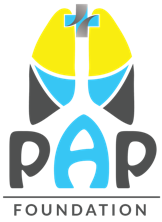
LOS ANGELES (PRWEB)
March 25, 2020
The PAP Foundation, Inc. (“PAPF”) is the primary patient advocacy organization for Pulmonary Alveolar Proteinosis (“PAP”) in the United States and consists of clinicians, scientists, PAP patients and their family members. With foundational goals of finding a cure and improving the lives of those affected by PAP, we have received numerous testimonials from patients whose lives have significantly improved through the use of inhaled GM-CSF. Outcomes have included improvement in exercise tolerance and quality of life, decreased need for whole lung lavage, and decreased need for oxygen therapy. Moreover, we have witnessed patients who have discontinued GM-CSF therapy after seeing significant improvement only to suffer disease recurrence necessitating the resumption of GM-CSF treatment.
PAPF commends both the PAGE (sponsored by Niigata University Medical & Dental Hospital) (shortened link: https://bit.ly/2WGi07F) and the IMPALA (sponsored by Savara Inc.) (shortened link: https://bit.ly/2y28XDC) investigators for conducting the first two multicenter randomized clinical trials using inhaled GM-CSF in patients with autoimmune Pulmonary Alveolar Proteinosis (“aPAP”). The results of the two studies differed in some regards, yet in aggregate PAPF interprets this data as further evidence inhaled GM-CSF can improve a number of outcomes including quality of life, pulmonary function testing parameters, the oxygenation of the blood as measured by “A-a gradient”, and the amount of surfactant seen on images of the lungs.
Based on the above trials and on the experiences of numerous PAPF patients, it is our continued reasoned position that inhaled GM-CSF treatment is not only an effective therapy for many patients, but the best medical option currently available to improve the overall health and quality of life for most aPAP patients. In contrast, the current standard of care for aPAP treatment is Whole Lung Lavage (“WLL”); a highly invasive, time-consuming and dangerous surgical procedure that is often needed throughout a PAP patient’s life whenever their symptoms become life-threatening or otherwise too much to bear.
Of particular note to the PAP patient and clinician communities, we believe the most efficacious results for aPAP patients on inhaled GM-CSF treatment take into consideration drug duration and dosage. The experiences shared among our patient and physician community suggest that the full impact of GM-CSF therapy can take multiple months, and treatment that does not allow for this requisite time will likely show suboptimal results. As to dosage, some in our community’s experience suggests that GM-CSF treatment is only effective once the dosage is high enough (presumably, to overcome the barrier of elevated anti-GM-CSF autoantibodies in each individual aPAP patient’s lungs). Using a number of patients in our community as case examples, 250 ug of GM-CSF daily failed to show improvement, however, when dosage was increased to 500ug daily, these patients no longer required additional whole lung lavages, some for multiple years. This represents a drastic improvement in this subset of patients compared to the year prior to initiating this increased dosage of GM-CSF.
Although the science as to PAP has come a long way in the recent past, since the revitalization of our patient foundation over 3 years ago, we have witnessed a number of patients in our PAP community tragically deteriorate; some requiring lung transplantation and others who are being kept alive on oxygen therapy or life support in a hospital setting. We believe that if these patients were properly diagnosed with PAP earlier and GM-CSF treatment was available to them, their lives and outcomes could have been dramatically improved.
The PAP Foundation remains steadfast in our mission to support the development of efficacious therapies and ultimately a cure for this devastating disease and is committed to its advocacy for FDA approval of inhaled GM-CSF therapy as a primary treatment option for aPAP patients.
In furtherance of the above, the PAP Foundation attended the FDA Rare Disease Day held at the FDA in Maryland on February 24, 2020, where we shared these sentiments during the Open Public Comment period and will be submitting this written statement together with our comments made at the FDA event to Federal Register Docket No. FDA-2019-N-5646.
This statement of support is provided by the leadership of the PAP Foundation, Inc., comprised entirely of doctors, clinicians, and PAP experts and/or patients, as such leadership is listed below:
President
Christopher Hameetman
Los Angeles, CA
Vice President & Clinical Director
Tisha Wang, M.D.
Los Angeles, CA
Second Vice President
Steven Park
Lakewood, CO
Secretary / Treasurer
Brenna Carey, M.S, Ph.D.
Cincinnati, Ohio
Scientific Director
Bruce Trapnell, M.D.
Cincinnati, Ohio
If you would like further information on this topic, please contact Brenna Carey, PAP Foundation Media Liaison, at 513-636-8916 or by email to brennac@papfoundation.org.
Share article on social media or email:

